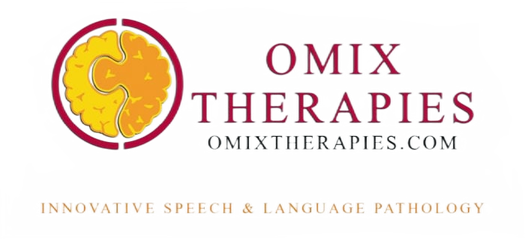What Is Childhood Apraxia Of Speech?
The Animals At The Farm Say

Childhood apraxia of speech (CAS) is a motor speech disorder where children have problems saying sounds, syllables, and words. It’s important to note, this is not because of muscle weakness or paralysis but rather brain’s difficulty in planning to move the body parts (e.g., lips, jaw, tongue) needed for speech.
For example, the child knows what he/she wants to say, but the muscles responsible to move to make the appropriate sounds do not coordinate correctly.
You can often see your child moving their mouth a lot as though they’re “searching” for the words to say but don’t seem to find the right sounds/words.
Although there is not one formula that identifies a child with CAS, there are some signs that may your child is presenting with CAS. Please make sure to consult with a Speech-Language Pathologist should you have any concerns.
General things to look for include the following:
A Very Young Child
- Does not coo or babble as an infant
- First words are late, and they may be missing sounds
- Only a few different consonant and vowel sounds
- Problems combining sounds; may show long pauses between sounds
- Simplifies words by replacing difficult sounds with easier ones or by deleting difficult sounds (although all children do this, the child with apraxia of speech does so more often)
- May have problems eating
- May seem as thought they’re searching for sounds and therefore, will move their mouths around a lot
An Older Child
- Makes inconsistent sound errors that are not the result of immaturity
- Can understand language much better than he or she can talk
- Has difficulty imitating speech, but imitated speech is more clear than spontaneous speech
- May appear to be groping when attempting to produce sounds or to coordinate the lips, tongue, and jaw for purposeful movement
- Has more difficulty saying longer words or phrases clearly than shorter ones
- When finally saying the word they were aiming for, or imitating, they will have difficulties saying it again for the second time
- Appears to have more difficulty when he or she is anxious
- Is hard to understand, especially for an unfamiliar listener
- Sounds choppy, monotonous, or stresses the wrong syllable or word
Potential Other Problems
- Delayed language development
- Other expressive language problems like word order confusions and word recall
- Difficulties with fine motor movement/coordination
- Over sensitive (hypersensitive) or under sensitive (hypo-sensitive) in their mouths (e.g., may not like tooth brushing or crunchy foods, may not be able to identify an object in their mouth through touch)
- Children with CAS or other speech problems may have problems when learning to read, spell, and write
Headquarters
8501 Wilshire Blvd. #336
Beverly Hills, CA 90211
Call Us
info@omixtherapies.com
Hours
Mon-Fri
9:00am – 6:00pm
